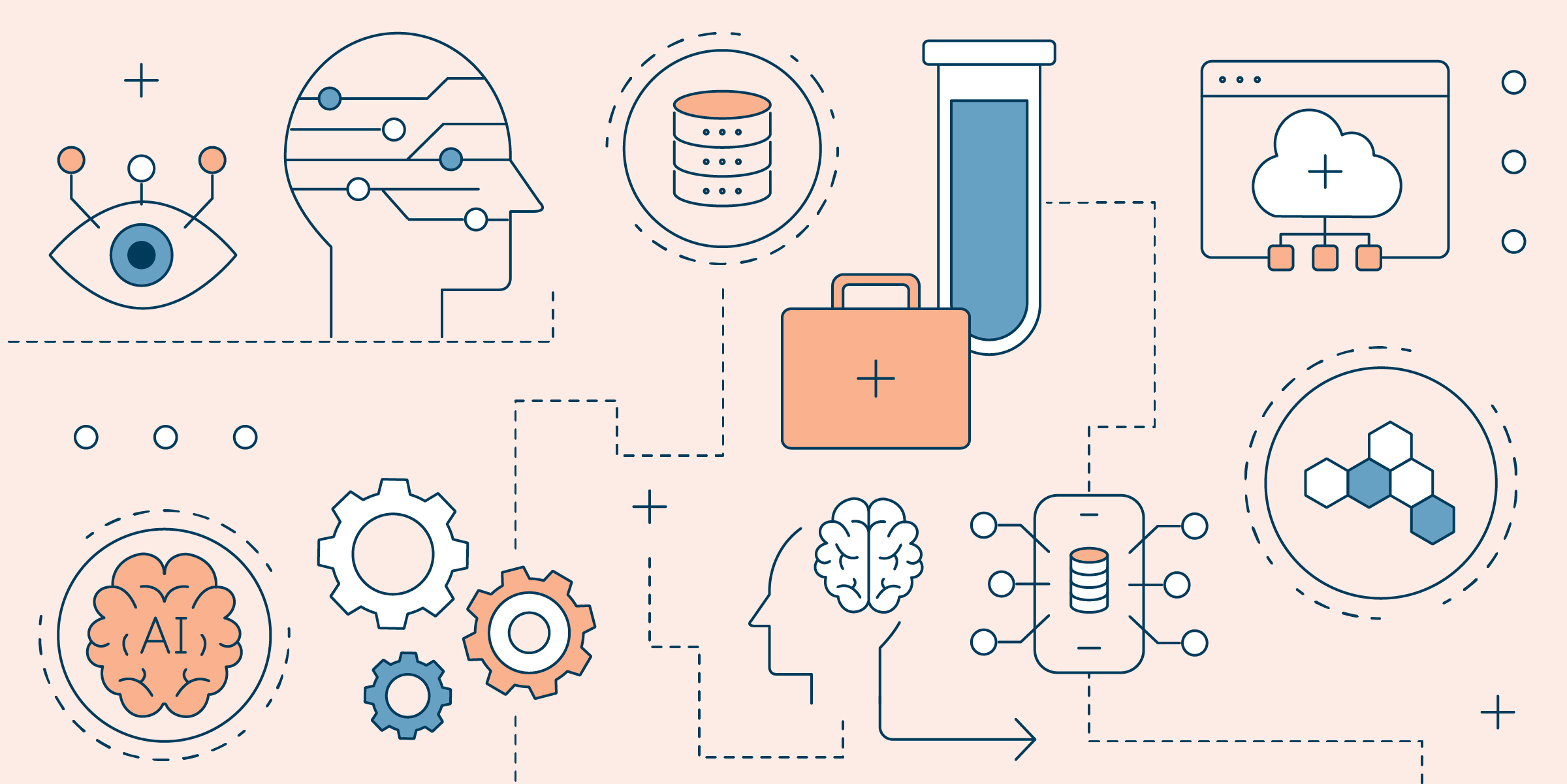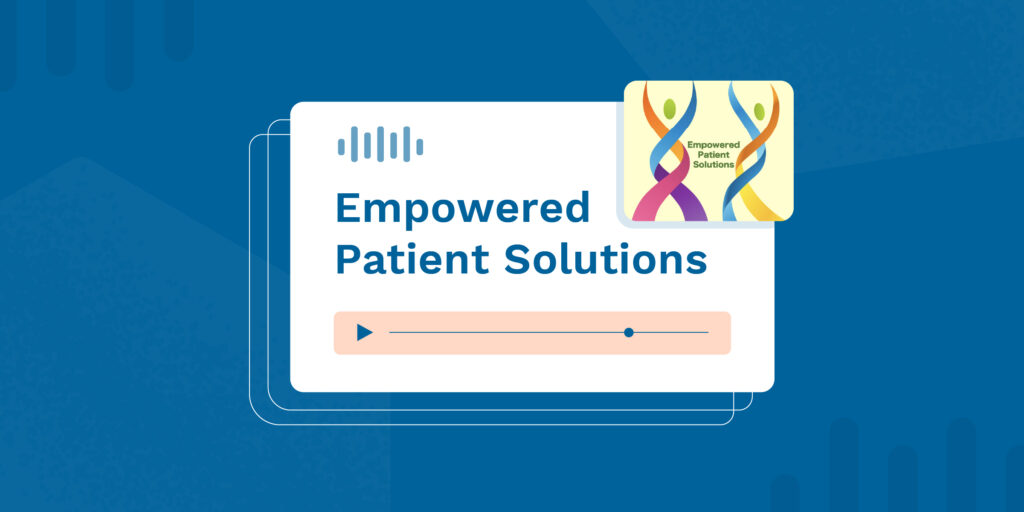The creation and evolution of artificial intelligence (AI) is transforming the healthcare industry. The technology has created a new world of possibilities in medical diagnosis, treatment, and patient care.
The creation and evolution of artificial intelligence (AI) is transforming the healthcare industry. The technology has created a new world of possibilities in medical diagnosis, treatment, and patient care. With AI, healthcare professionals can make faster and more accurate decisions, streamline processes, and better care for patients, all thanks to the troves of healthcare data and access to advanced data algorithms that have unlocked critical insights into patient care.
While AI can create faster, more intelligent processes and workflows, some aspects of the technology require scrutiny. From protecting patient privacy to balancing the ethical and legal implications of leveraging patient data to train AI algorithms, healthcare professionals must strike a delicate balance when integrating this new branch of technology. Doing so may prove difficult for some healthcare facilities.
In this article, we’ll discuss the current landscape of AI in healthcare—including its applications and benefits—and where the technology is poised to go in the future. We’ll also discuss the challenges and opportunities AI faces now and will likely face in the future.
What’s the Current Landscape of AI in Healthcare?
The presence of AI in the healthcare industry has quickly gone from novel to normal, with applications ranging from medical imaging analysis to personalized treatment recommendations. Healthcare facilities are increasingly experimenting with machine learning technologies and algorithms to assist with diagnosing diseases in medical images, including X-rays, MRIs, and CT scans.
Meanwhile, natural language processing (NLP) algorithms are becoming a common tool to extract critical insights from vast amounts of unstructured medical data, including electronic health records (EHRs) and medical literature. These insights have enabled clinicians to make better, more accurate decisions around patient healthcare. Certain AI tools have even shown the capacity to outperform human experts in clinical reasoning.
It’s because of these applications and their benefits that the adoption of AI in health tech has accelerated worldwide. According to Grandview Research, the global AI healthcare market is expected to grow at a CAGR of 38.5% from 2024 to 2030. The surge in investment emphasizes the growing confidence among healthcare professionals in the AI industry and its potential to revolutionize healthcare delivery.
Current Opportunities for AI in Healthcare
AI’s integration into healthcare has already opened up a wide array of opportunities—from enhancing data utilization to fostering innovation in drug and prescription discovery. Knowing the current applications of AI in healthcare is critical to better understanding the unique challenges posed by its adoption.
Below are just a few ways AI is being used in the industry:
Unlocking unstructured data: Currently, 97% of healthcare data remains unused and inaccessible because it is unstructured. This includes data from X-rays, medical records (e.g scanned documents and clinical notes), and genomic data. AI technologies—including machine learning and NLP—can easily process all this unstructured data, making it more accessible and useful for healthcare professionals. For example, large language models, the type of technology used by ChatGPT, can quickly create a summary of a patient’s chart history and extract meaningful insights from clinical notes, which improves diagnostic accuracy and treatment plans.
Data integration and analysis: A major strength of AI is its ability to collect, analyze, and augment data from diverse sources, including EHRs, wearable devices, and genomics. With a holistic view into health data and medical history, physicians have a more comprehensive understanding of each patient, which leads to more personalized treatment strategies.
Operational efficiencies: AI streamlines administrative processes, including scheduling, billing, and claims processing, which reduces operational costs. For example, practices can leverage machine learning to proactively streamline claim processing through automated denial management tools which evaluate new claims as they are created and flag those identified as having a high probability of denial. Processes like these ultimately result in healthcare providers being able to allocate more resources to patient care.
Reducing diagnostic errors: AI algorithms improve diagnostic accuracy, which reduces the likelihood of costly medical errors. For example, AI systems can quickly analyze medical images with higher accuracy, allowing radiologists to identify conditions that may be missed during manual reviews. This enhances patient outcomes and decreases the costs associated with misdiagnoses and subsequent treatments.
Accelerating research: AI significantly shortens drug discovery research by predicting how different compounds will interact with biological targets. This can reduce the time and cost of bringing new drugs to market. AI models can also analyze vast datasets to identify potential drug candidates and predict their efficacy and safety, streamlining clinical trial phases.
Continuous health tracking: AI-powered remote monitoring tools enable continuous tracking of a patient’s health metrics, including heart rate, blood pressure, and glucose levels. Each of these tools can alert healthcare providers to potential issues before they become critical. For chronic disease management, AI’s continuous monitoring can reduce hospital readmissions and improve patients’ quality of life.
Virtual assistants and chatbots: AI-driven chatbots and virtual assistants improve patient engagement by providing 24/7 access to medical information, appointment scheduling, medication reminders, and more. These tools can easily handle routine inquiries, freeing up healthcare professionals to focus on more complex tasks and improving the patient experience.
Forecasting patient needs: Finally, predictive analytics can forecast patient volumes, allowing hospitals to optimize staffing and resources. By analyzing patterns and trends, AI tools can help healthcare providers anticipate demand and allocate resources more effectively, ensuring patients receive timely care.
The Unique Challenges of AI in Healthcare
Even with all the benefits AI offers, providers can face several significant challenges when implementing it into their workflows. From data privacy and security to bias and fairness, these unique complexities often require specialized skills and training to navigate.
Data Privacy and Security
One of the biggest concerns around AI is its ability to handle sensitive and confidential data. Because patient data includes personal, financial, and medical information, protecting it from security breaches and unauthorized access is critical. AI systems require access to large datasets to function effectively, which increases the risk of data breaches.
Adding to this challenge is ensuring compliance with healthcare regulations such as the Health Insurance Portability and Accountability Act (HIPAA) in the United States and the General Data Protection Regulation (GDPR) in Europe.
Another vulnerability created by AI is the increased digitization of healthcare. Cyberattacks on healthcare systems are increasing, with the OCR receiving reports of 720 data breaches of 500 or more patient records. These breaches can have devastating consequences, including the disruption of services and potential patient harm. To protect against this, a well-defined security process is required when considering turning EHR patient records into an ML dataset to ensure that protected health information (PHI) is removed.
Bias and Fairness
Despite the training of AI algorithms, AI systems can perpetuate—even exacerbate—existing human biases in the data they are trained on. For example, if training data is predominantly on a specific demographic, the AI system may perform poorly or make biased decisions regarding underrepresented groups. This can lead to disparities in healthcare delivery and outcomes.
Handling data bias in a medical context is especially challenging, because many of the factors one would typically want to account for to avoid classical data biases (gender, race, etc.) can also be meaningful medical predictors. This makes biases more likely to occur from undersampling of specific populations, or from overzealous data cleaning that removes predicting factors in a well-meaning effort to avoid biases of the opposite nature.
AI systems may find it difficult to identify or address such biases, which makes the need for using diverse and representative datasets when training AI models critical. Additionally, healthcare professionals and data analysts must continuously monitor and evaluate AI systems to detect and mitigate biases early on.
Integration with Existing Systems
Many healthcare facilities still operate on outdated legacy systems that aren’t designed to integrate with modern AI technologies. Upgrading these systems can be costly and time-consuming. Additionally, ensuring compatibility between new AI tools and these existing systems is often a complex technical challenge.
Ultimately, achieving seamless interoperability between various AI systems and healthcare platforms is critical. To do so, healthcare professionals must create standardized protocols and data formats—which isn’t a simple task.
Ethical Considerations
The use of AI in healthcare has raised several ethical questions, particularly around consent and autonomy. In traditional healthcare practices, patients should be informed about how their data is used and have the option to consent or decline the use of AI in their care. Transparency in the AI decision-making processes is also critical to maintain patient trust.
Another ethical consideration raised by AI is accountability and liability. For example, in cases where AI systems make errors, it’s typically unclear who is responsible for the error: the AI system, the developer, or the physician. This issue can be properly addressed only by creating clear guidelines and frameworks for accountability.
Here’s the bottom line: while AI has the potential to revolutionize healthcare, the challenges must be addressed to ensure the technology is safe, fair, and effectively used in healthcare.
The Future of AI in Health Tech
As AI continues to evolve, the opportunities—as well as the challenges—will continue. However, the integration of AI in the healthcare industry will continue. AI is predicted to move from pilot projects to enterprise-wide solutions and ultimately impact all areas of healthcare delivery.
Below is a brief look into the future of AI in healthcare:
Advanced AI applications: AI will continue to play a larger role in forecasting patient volumes and healthcare needs with predictive models playing a major role in analyzing patient patterns and trends. The use of virtual health assistants will also continue to increase with the technology becoming more sophisticated and offering real-time health advice.
Regulatory and ethical advancements: As government bodies continue to develop frameworks and standards for AI, there may be a bigger focus to ensure the safe and effective use of AI in healthcare. However, bias mitigation and data privacy will remain at the forefront of regulatory discussions.
Collaboration and partnership: In the future, it’s predicted that healthcare providers will partner more with technology companies to develop and deploy AI tools. Through these collaborations, the innovation and adoption of AI in healthcare will increase.
Focus on sustainability: AI may help to promote sustainability in healthcare by optimizing resource use in healthcare facilities. This will help to reduce waste and improve efficiency. This prediction also aligns with broader trends towards more eco-friendly practices in the healthcare industry.
Ultimately, the future of AI in the healthcare industry is promising—despite its unique challenges. AI has the potential to improve patient outcomes, enhance operational efficiencies, and create a more sustainable healthcare system. However, only until the unique challenges created by AI are addressed can the adoption of the technology into the healthcare industry be considered truly successful.





